The GPO poll for «Parapolitika» was conducted between July 21-23, 2025, to capture trends in Greek public opinion regarding three critical areas: the OPEKEPE case, immigration, and how these developments affect and shape political correlations. The results reveal intense political dissatisfaction with the handling of European agricultural subsidies, high sensitivity and acceptance of government measures on immigration, but also lack of confidence toward existing political formations.
GPO poll for Parapolitika: What citizens say about OPEKEPE and immigration
The OPEKEPE case, which relates to non-transparent procedures in managing agricultural subsidies, is assessed as particularly important by 93.2% of respondents. The widespread recognition of the case’s seriousness demonstrates high public sensitivity to corruption issues and causes anger, fury and disappointment in the vast majority of citizens. Government handling is judged negatively by 74.5%, while a similar percentage (74.0%) states that their confidence in the government has been shaken. At the same time, however, 69.1% negatively judge PASOK’s stance on the issue, indicating cross-party loss of confidence and feeding public perception of a chronic scandal affecting the entire political system at 72.8%, rather than an isolated case exclusively related to the current government.
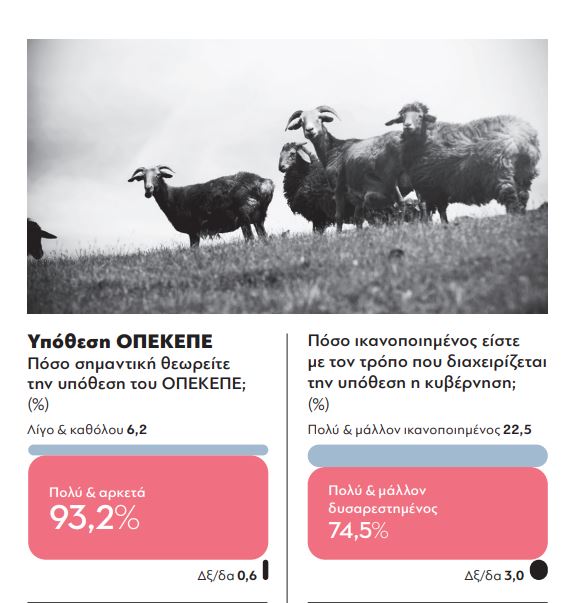
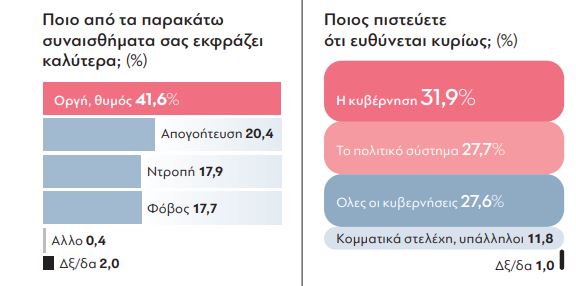
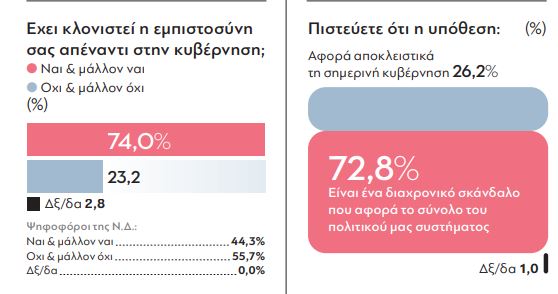
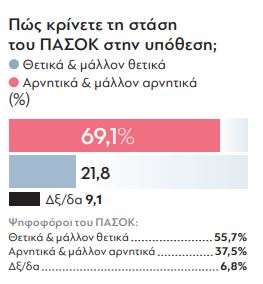
The increase in migration flows recently concerns 90.8% of the population, indicating its central position on the public agenda. Government policy is evaluated positively by 37.5% and negatively by 58.0%, with public opinion favoring implementation of stricter decisions at 40% to address the phenomenon, while 32.7% characterize government choices as excessive and contrary to national and international law principles. However, what the government majority and competent minister Thanos Plevrris have announced so far appears to find citizens in agreement and gather broader cross-party acceptance, demonstrating the sense of insecurity caused by the escalation of the migration issue. Specifically:
The contradiction between the partly negative assessment of government policy and acceptance of harsh measures reveals a trend of “punitive consensus”, with citizens wanting more effective and strict solutions while maintaining reservations about their implementation by the current government.
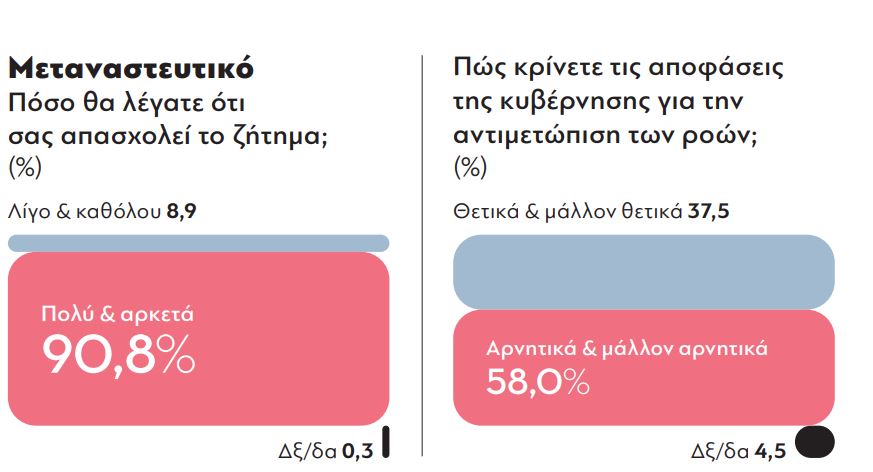
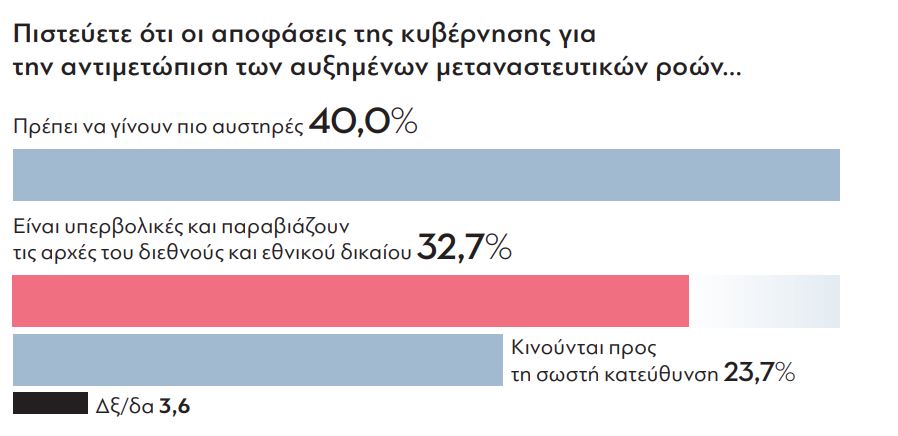
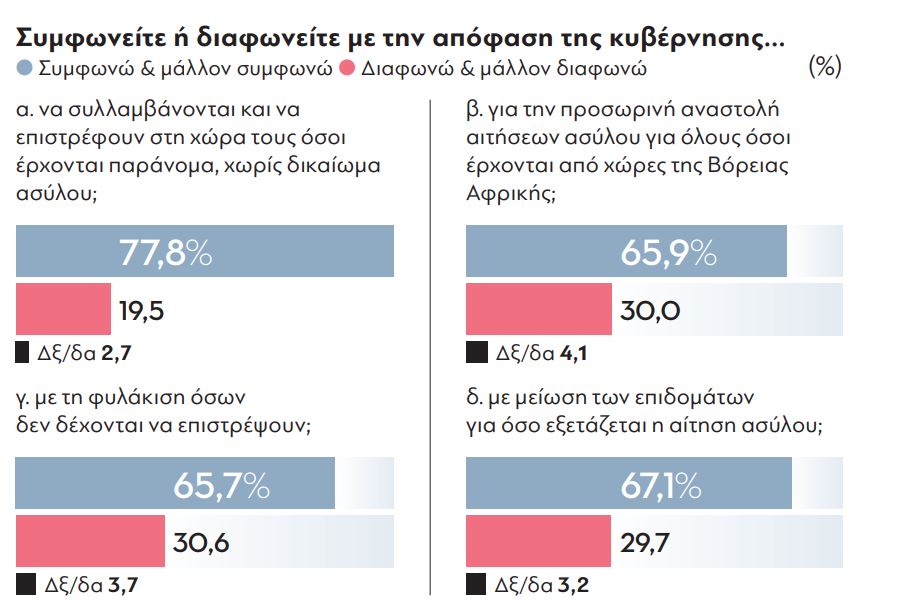

3-point drop in voting intention, Kyriakos Mitsotakis remains most suitable PM
The government image is declining: 28.6% evaluate the government’s work positively (down from 32.9% in June), while 70.8% negatively. This dissatisfaction is also expressed as preference for political change, as 68.2% state they want a different government in the next elections, though this dissatisfaction doesn’t automatically translate into strengthening alternative political proposals. On the contrary, we observe that in the question about the most suitable prime minister, K. Mitsotakis continues with 25.3% to lead ahead of other political leaders, who are detected in single-digit percentages. At the same time, regarding voting intention, the three percentage point erosion of New Democracy, which dropped from 26% in June to 23% today, is not being capitalized on by any opposition parties, as they also record polling declines: PASOK dropped from 12.7% in June to 11.2% today, and Course of Freedom from 12.5% last month to 10.5%. Greek Solution remains stable at 9.4%, KKE at 7.2% and SYRIZA at 5%, while the only growing pool is undecided voters, which increased from 12.1% to 17.7% in one month, strongly reflecting the political representation deficit facing a significant part of the electorate.
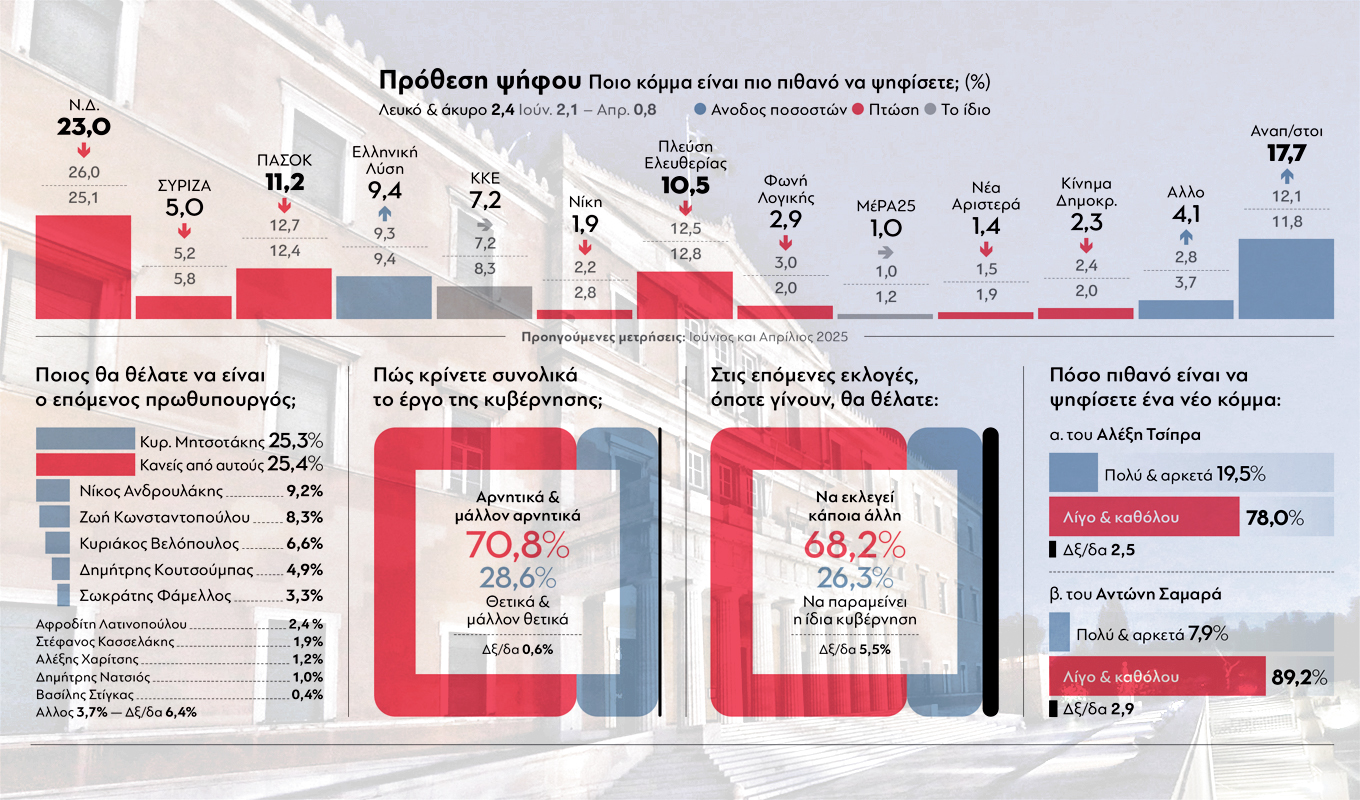

GPO poll identity for Parapolitika
IDENTITY: G.P.O. RESEARCH COMMUNICATION S.A. COMMISSIONER: “PARAPOLITIKA” GROUP PURPOSE: Research on developments in Greece TIME PERIOD: 21-23/07/25 SAMPLE: 1,000 individuals, aged 17+ years. Conducted entirely SAMPLING: Stratified sampling. The sample was distributed using quotas method, proportional to regions, gender, age and party preference. DATA COLLECTION: Telephone and online interviews using CATI and CAWI systems with structured questionnaire. STATISTICAL ERROR: ± 2.95%. We note that the measurement data we present, especially voting intention, constitute recording of trends prevailing during the given time period of research conduct.
infographics: Parapolitika
Published in Parapolitika




